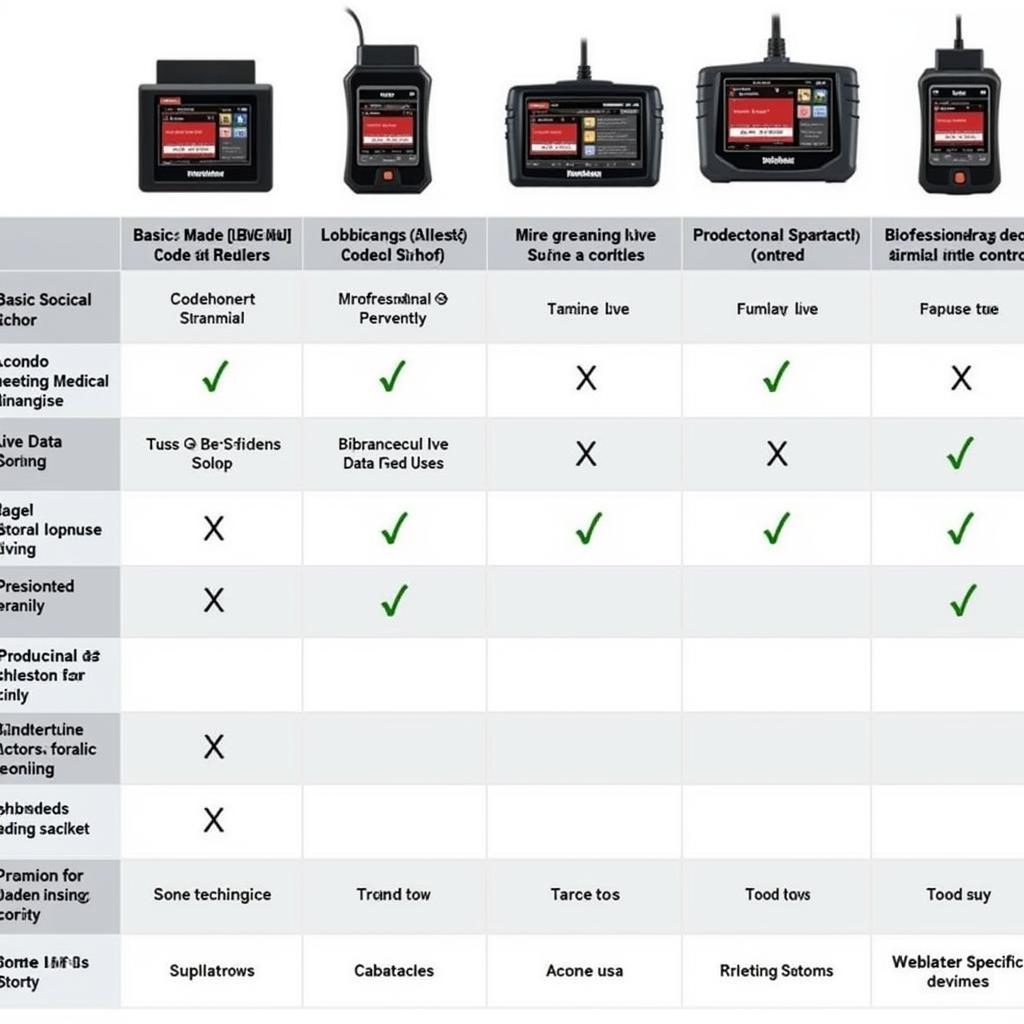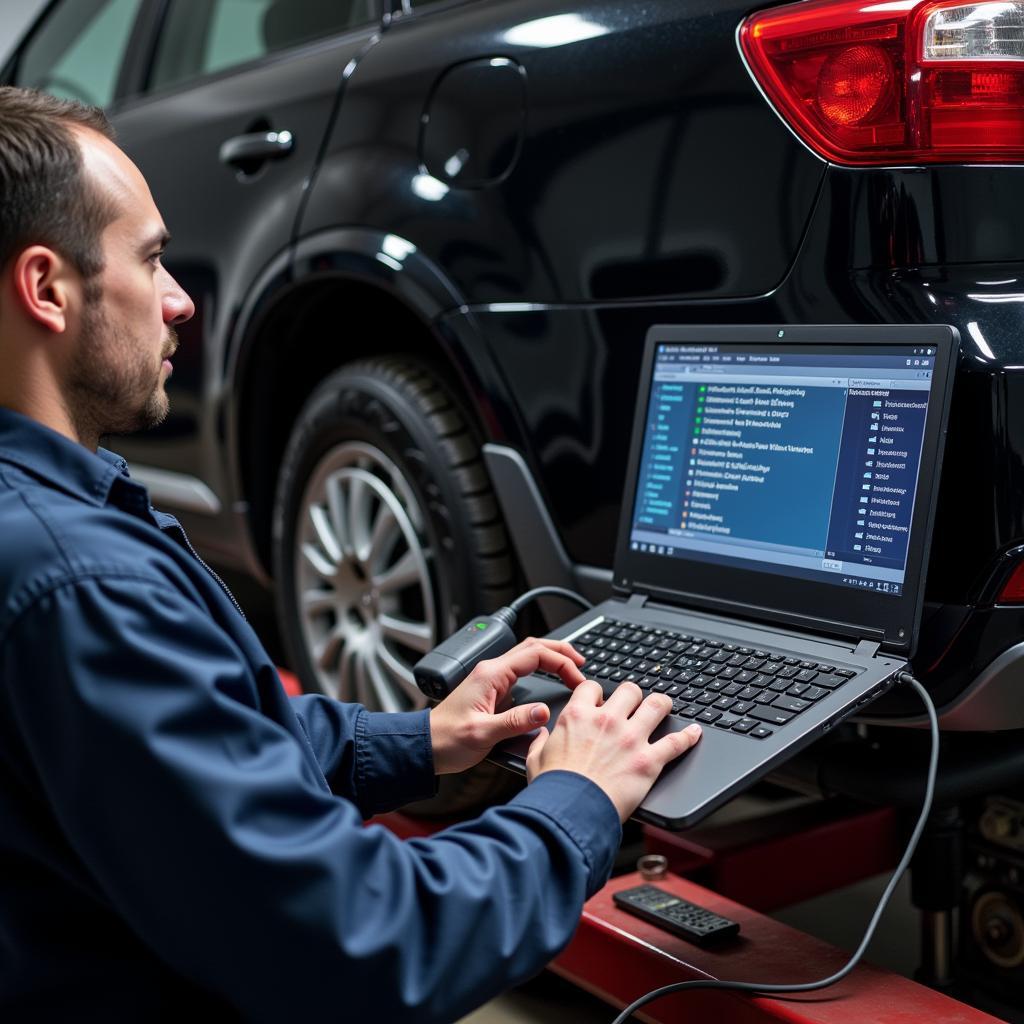The automotive world is rapidly evolving, with vehicles becoming increasingly complex. Keeping up with these advancements requires sophisticated diagnostic tools, and while a “Linksys Diagnostic Tool” isn’t a recognized term in automotive diagnostics, this article aims to clarify the landscape and guide you toward the right solutions for your car troubleshooting needs. We’ll explore various diagnostic approaches, software options, and the importance of choosing the correct equipment for efficient and accurate repairs. Understanding the right tools and techniques can empower both DIY car owners and professional mechanics to diagnose and fix problems effectively.
Do you find yourself constantly battling mysterious car troubles? Are you a mechanic looking to upgrade your diagnostic arsenal? This article will delve into the world of automotive diagnostics, helping you understand how to choose and utilize the right tools and software to pinpoint those elusive automotive gremlins. We’ll cover everything from basic OBD-II scanners to advanced diagnostic software, ensuring you’re well-equipped to tackle any automotive challenge.
Understanding Automotive Diagnostics
Before we dive into specific tools and software, let’s understand the basics of automotive diagnostics. Modern vehicles are equipped with onboard diagnostic systems (OBD-II) that monitor various components and systems. These systems generate diagnostic trouble codes (DTCs) when a malfunction is detected. Accessing these codes is the first step in diagnosing a vehicle problem. This is where diagnostic tools come into play.
While there isn’t a specific tool called a “Linksys diagnostic tool,” Linksys is known for its networking equipment. Perhaps the user is looking for a diagnostic tool that can connect to a network for updates or remote diagnostics. This is becoming increasingly common in professional repair shops. If this is the case, choosing a diagnostic tool with Wi-Fi or Ethernet connectivity is crucial.
windows 10 diagnostic tool says dns is slow to respond
Choosing the Right Diagnostic Tool for Your Needs
Several types of diagnostic tools cater to different needs and budgets. For the DIY enthusiast, a basic OBD-II code reader can provide valuable information about the nature of the problem. These affordable devices can read and clear DTCs, giving you a starting point for further investigation.
For professional mechanics and serious DIYers, more advanced scan tools offer a wider range of functionalities. These tools can access manufacturer-specific codes, perform bidirectional controls, and provide live data streams from various sensors. Choosing the right scan tool depends on the types of vehicles you work on and your budget.
 Automotive Diagnostic Tools Comparison Chart
Automotive Diagnostic Tools Comparison Chart
Software Solutions for Enhanced Diagnostics
Diagnostic software can further enhance your troubleshooting capabilities. These software packages can interpret DTCs, provide detailed troubleshooting information, and even offer wiring diagrams and repair procedures. Some software solutions can interface directly with your diagnostic tool, providing a seamless diagnostic experience.
Choosing the right software depends on your needs and the type of diagnostic tool you’re using. Some software is designed for specific vehicle makes, while others offer broader coverage. Consider factors like user interface, features, and updates when selecting diagnostic software.
Why Accurate Diagnostics Matter
Accurate diagnostics are essential for efficient and cost-effective repairs. Guesswork can lead to replacing unnecessary parts, wasting time and money. A reliable diagnostic tool and software can pinpoint the root cause of the problem, allowing you to focus your efforts on the correct repair.
“Accurate diagnostics are the foundation of any successful repair,” says Michael Stevens, ASE Certified Master Technician. “Investing in the right tools and software is crucial for saving time and money in the long run.”
 Mechanic Using Diagnostic Software on a Laptop
Mechanic Using Diagnostic Software on a Laptop
Linksys Diagnostic Tool: Addressing Network Connectivity
While a “Linksys diagnostic tool” isn’t a recognized term in the automotive world, it’s worth noting that network connectivity is becoming increasingly important in modern diagnostic equipment. Many professional-grade scan tools can connect to a network for software updates, remote diagnostics, and data logging. Choosing a tool with Wi-Fi or Ethernet capabilities can enhance your diagnostic workflow.
Conclusion
While a “Linksys diagnostic tool” may not exist in the traditional sense, choosing the right automotive diagnostic tools and software is crucial for effectively troubleshooting car problems. From basic code readers to advanced scan tools and software solutions, the options are vast. Understanding your needs and investing in the right equipment will empower you to diagnose and fix automotive issues accurately and efficiently. For further assistance and a wide range of diagnostic solutions, feel free to connect with ScanToolUS at +1 (641) 206-8880 or visit our office at 1615 S Laramie Ave, Cicero, IL 60804, USA.
FAQ
-
What is an OBD-II code reader?
A device used to read and clear diagnostic trouble codes (DTCs) generated by a vehicle’s onboard diagnostic system. -
What is the difference between a code reader and a scan tool?
Scan tools offer more advanced features than code readers, such as live data streaming and bidirectional control. -
What is diagnostic software used for?
It interprets DTCs, provides troubleshooting information, and may offer wiring diagrams and repair procedures. -
How do I choose the right diagnostic tool?
Consider your needs, budget, and the types of vehicles you work on. -
Why is accurate diagnosis important?
It saves time and money by pinpointing the root cause of the problem, avoiding unnecessary repairs. -
Does Linksys make an automotive diagnostic tool?
No, Linksys is primarily known for networking equipment. The term “Linksys diagnostic tool” likely refers to a desire for networked diagnostic capabilities. -
Where can I find reliable automotive diagnostic tools and software?
Contact ScanToolUS at +1 (641) 206-8880 or visit our office at 1615 S Laramie Ave, Cicero, IL 60804, USA.
